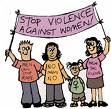Affirmative action is working against South Africa, Trevor Tutu told a conference on the issue in Pretoria on Wednesday.
Tutu, the son of Nobel laureate Archbishop Desmond Tutu, said affirmative action made young South Africans bitter and they then left the country to work somewhere taking their skills with them.
"In this manner we are exporting our children to sustain other countries at our expense... including former colonial masters," he told the Solidarity conference on affirmative action in Pretoria.
"What do you call it, when my daughter gets a scholarship to study and her white counterpart could not get the scholarship, based on colour."
He said that 15 years into democracy South Africa could have created equal opportunities for all and that people should not be judged according to mistakes committed by their forefathers.
"Race is not useful for anything," he said.
Professor Marinus Wiechers said the apartheid system was based on an extensive system of racial classification.
"Based on this racial designation, the white population were advantaged and other racial groups were reduced to inferior citizens. Racial classification has created inequalities over the whole spectrum of the South African society and was the principal inciter of racist sentiments," he said.
He said affirmative action in its variety of different forms had imported a new form of racial classification.
The generic determination was that "blacks" meant black people (Africans), coloured people and Indians."This new type of arbitrary racial classification led to a variety of contradictory, unfair and unconstitutional practices."
Affirmative action, as currently applied, had a paralysing and negative impact on nearly all areas of public administration. At the same time, it had become the foremost breeding ground for racism and racist sentiments, he said.
Professor Terence Gomez from the University of Malaya said the lesson Malaysia learnt from affirmative action was that it was a sound policy to rectify historical social injustices, but after the short-term the policy must expand the range of targeted groups and individuals based on class position.
"Targeting and selective patronage in business without transparency has serious repercussion, unsustainable in long run. It undermines economic growth, and hinders domestic enterprise development."Solidarity spokesman Dirk Hermann said his organisation had called the conference to discuss how affirmative action was accepted in other countries and whether it had been successful.Hermann said that according to Solidarity's research affirmative action had failed in many countries."In America 24 percent of American want it and the rest do not... there is something wrong with affirmative action and that needs to be corrected. We do not have to do away with the whole concept but to correct the mistakes," he said.
Former state president FW de Klerk opened the conference reiterating his stance that affirmative action was unfair.
"The manner in which affirmative action is implemented does not promote equality but it discriminates unfairly," he said.
De Klerk said affirmative action must promote equality and black economic empowerment must create opportunities for all and not for a selected elite. - Sapa
He said that 15 years into democracy South Africa could have created equal opportunities for all and that people should not be judged according to mistakes committed by their forefathers.
"Race is not useful for anything," he said.
Professor Marinus Wiechers said the apartheid system was based on an extensive system of racial classification.
"Based on this racial designation, the white population were advantaged and other racial groups were reduced to inferior citizens. Racial classification has created inequalities over the whole spectrum of the South African society and was the principal inciter of racist sentiments," he said.
He said affirmative action in its variety of different forms had imported a new form of racial classification.
The generic determination was that "blacks" meant black people (Africans), coloured people and Indians."This new type of arbitrary racial classification led to a variety of contradictory, unfair and unconstitutional practices."
Affirmative action, as currently applied, had a paralysing and negative impact on nearly all areas of public administration. At the same time, it had become the foremost breeding ground for racism and racist sentiments, he said.
Professor Terence Gomez from the University of Malaya said the lesson Malaysia learnt from affirmative action was that it was a sound policy to rectify historical social injustices, but after the short-term the policy must expand the range of targeted groups and individuals based on class position.
"Targeting and selective patronage in business without transparency has serious repercussion, unsustainable in long run. It undermines economic growth, and hinders domestic enterprise development."Solidarity spokesman Dirk Hermann said his organisation had called the conference to discuss how affirmative action was accepted in other countries and whether it had been successful.Hermann said that according to Solidarity's research affirmative action had failed in many countries."In America 24 percent of American want it and the rest do not... there is something wrong with affirmative action and that needs to be corrected. We do not have to do away with the whole concept but to correct the mistakes," he said.
Former state president FW de Klerk opened the conference reiterating his stance that affirmative action was unfair.
"The manner in which affirmative action is implemented does not promote equality but it discriminates unfairly," he said.
De Klerk said affirmative action must promote equality and black economic empowerment must create opportunities for all and not for a selected elite. - Sapa
NOTA: Algumas vozes continuam a levantar-se na África do Sul contra a Affirmative Action, uma política baseada na classificação racial e que beneficia certos grupos alegadamente para corrigir as injustiças do passado. Esta política tem sido questionada porque cria ressentimentos nos jovens e injustiças, beneficiando principalmente as elites.
























2 comments:
There should be a balance in affirmative action. BEE is already backfiring in South Africa. They are losing skilled men and women who are leaving the country. Soon, they will be contracting overseas skilled labour to fill their posts at a detriment to the economy of the country, as they won't leave their countries to settle in RSA for love, but rather based on the challenges and good packages offered. Something similar happened in Mozambique when the Portuguese left. Russians, Chinese, Cubans and others came to work in Mozambique, but, do believe me, through personal experience, some of them were racist and not really competent.
Maria Helena
Trevor Tutu asks:
" What do you call it, when my daughter gets a scholarship to study and her white counterpart could not get the scholarship, based on colour."
This is my drama, my children can not get bursaries because their skins are not dark enough, so I have to pay a fortune for their education, while less deserving kids get bursaries in the name of social engineering.
The imbalances of the past must be addressed but reverse descrimination is always unfair, we should move now to equal opportunities.
Post a Comment